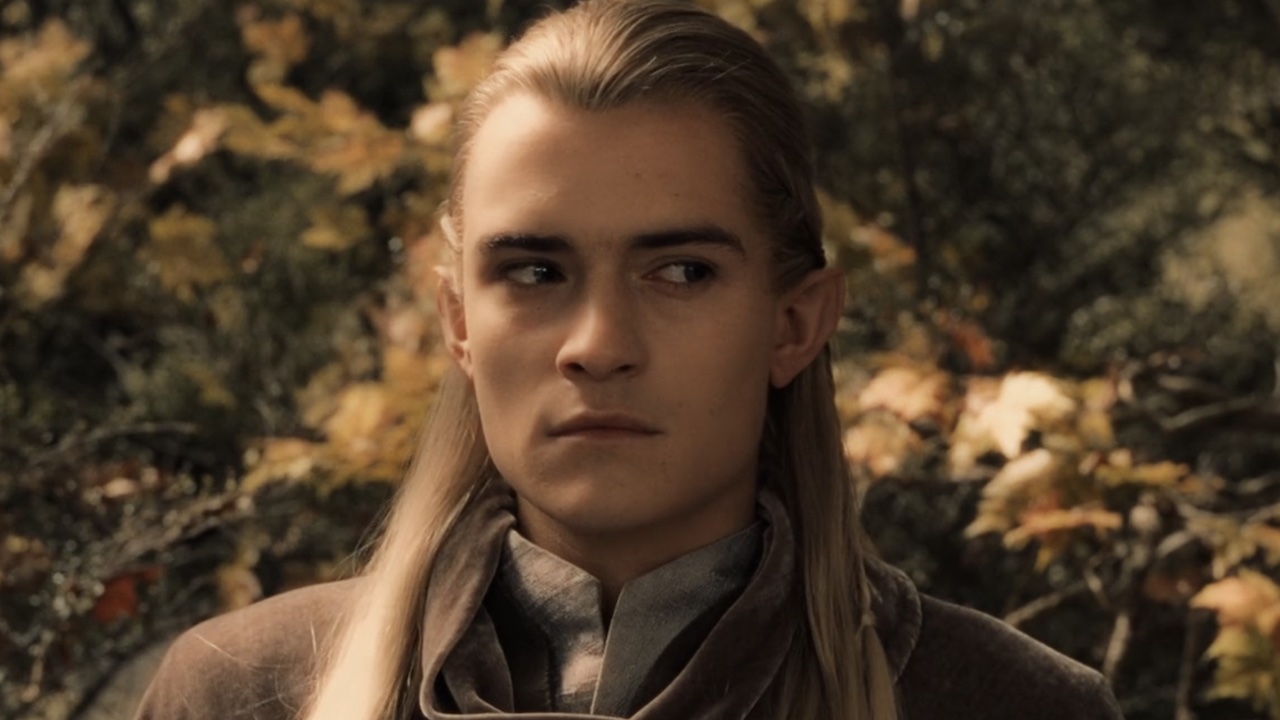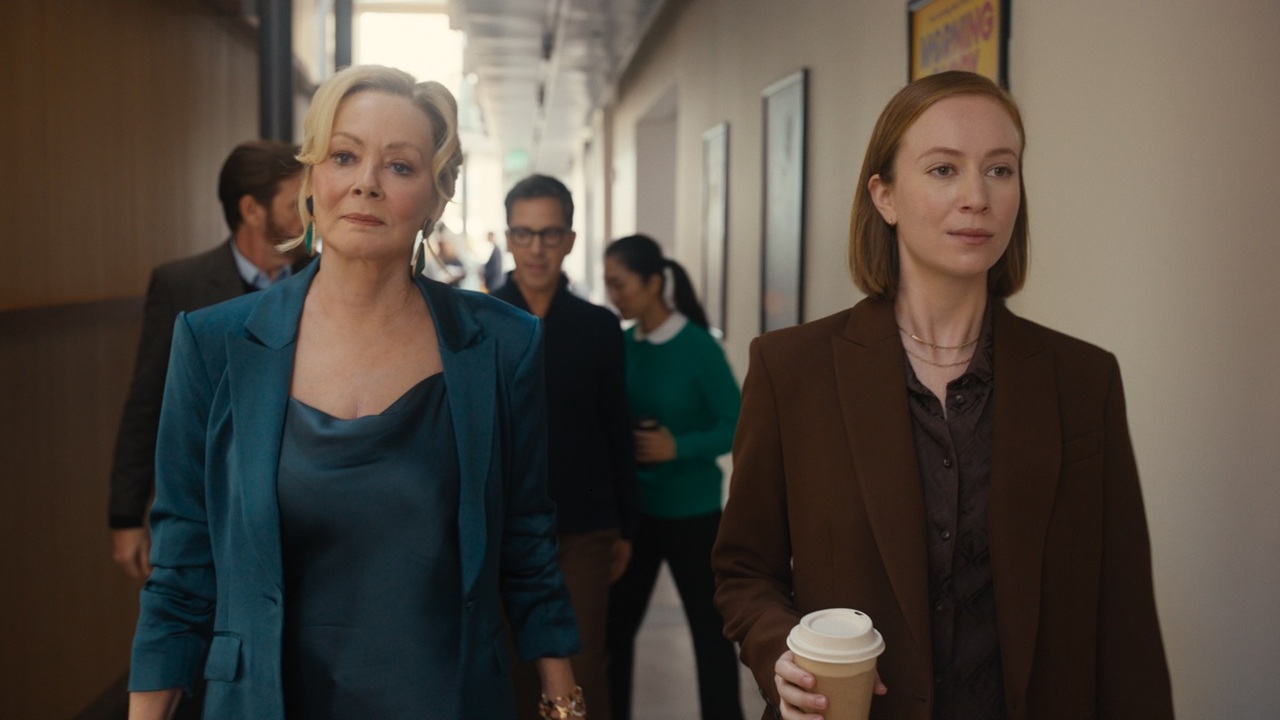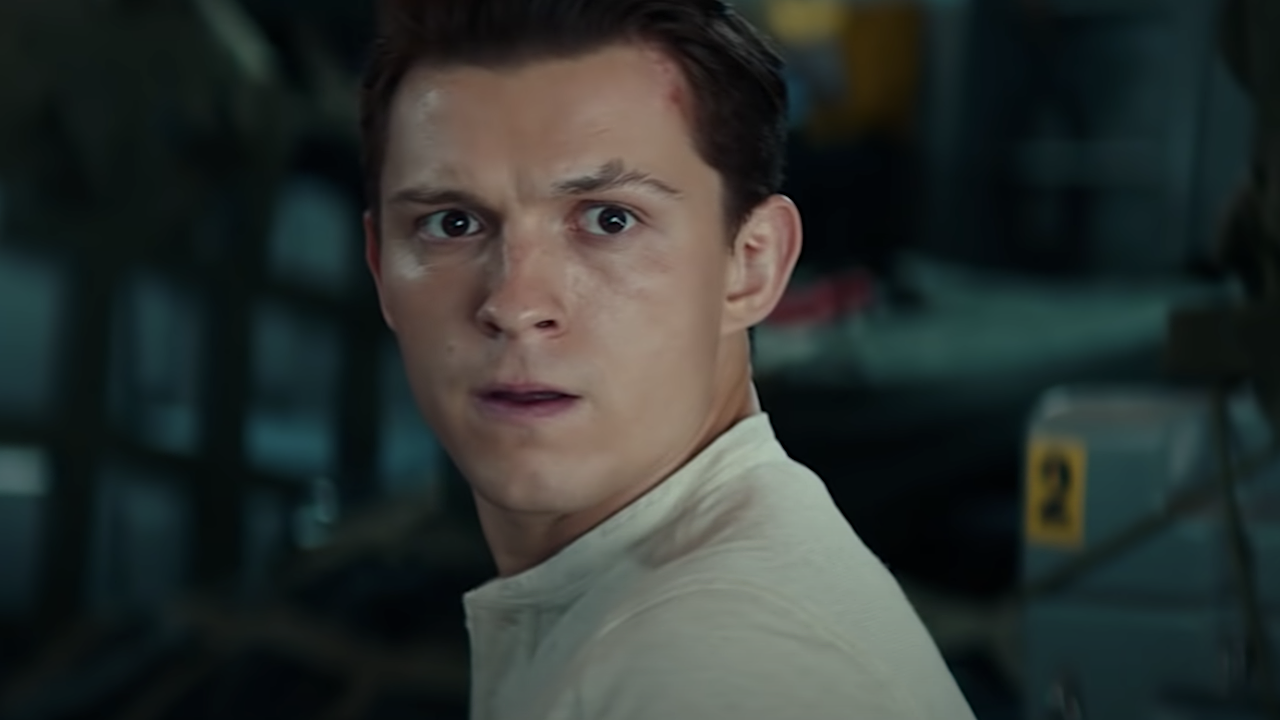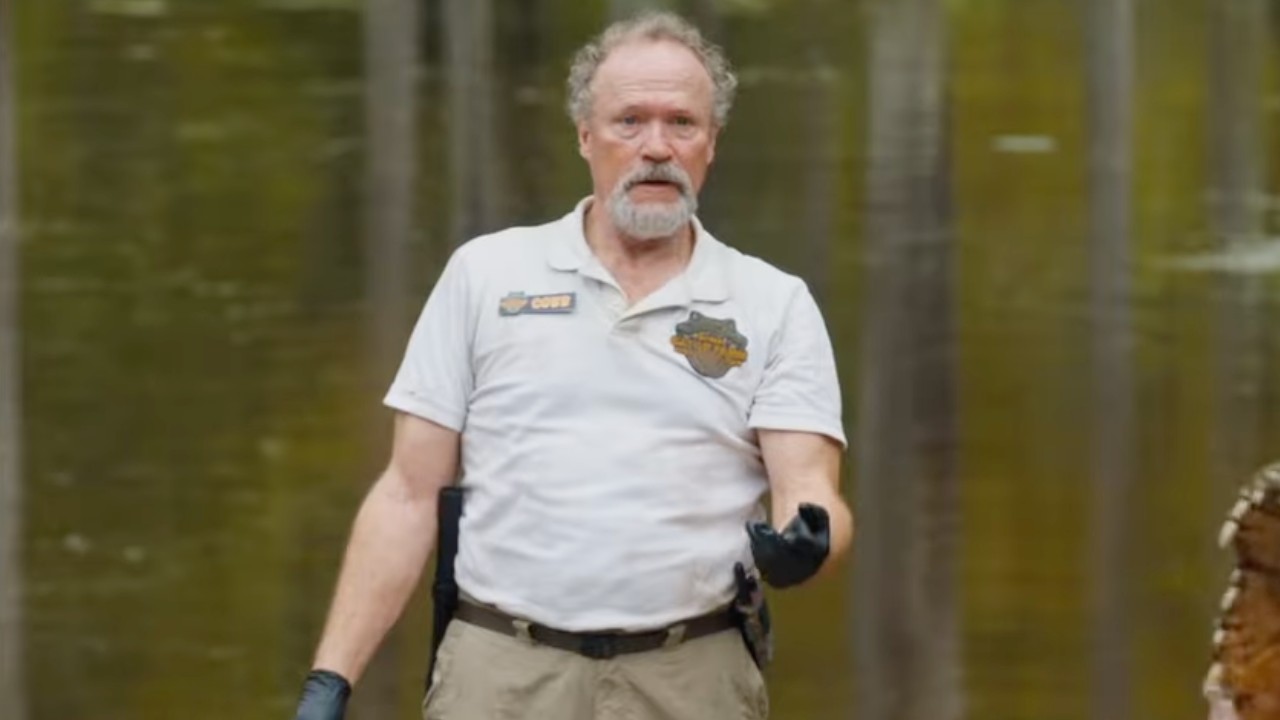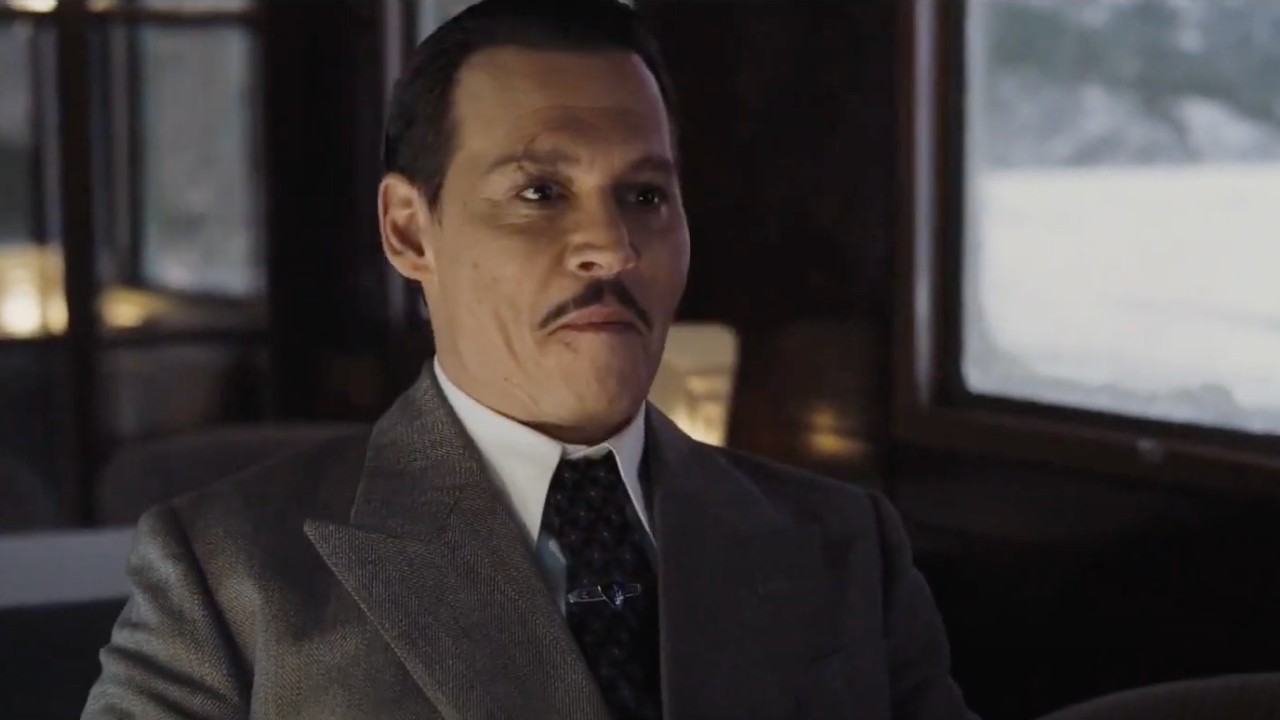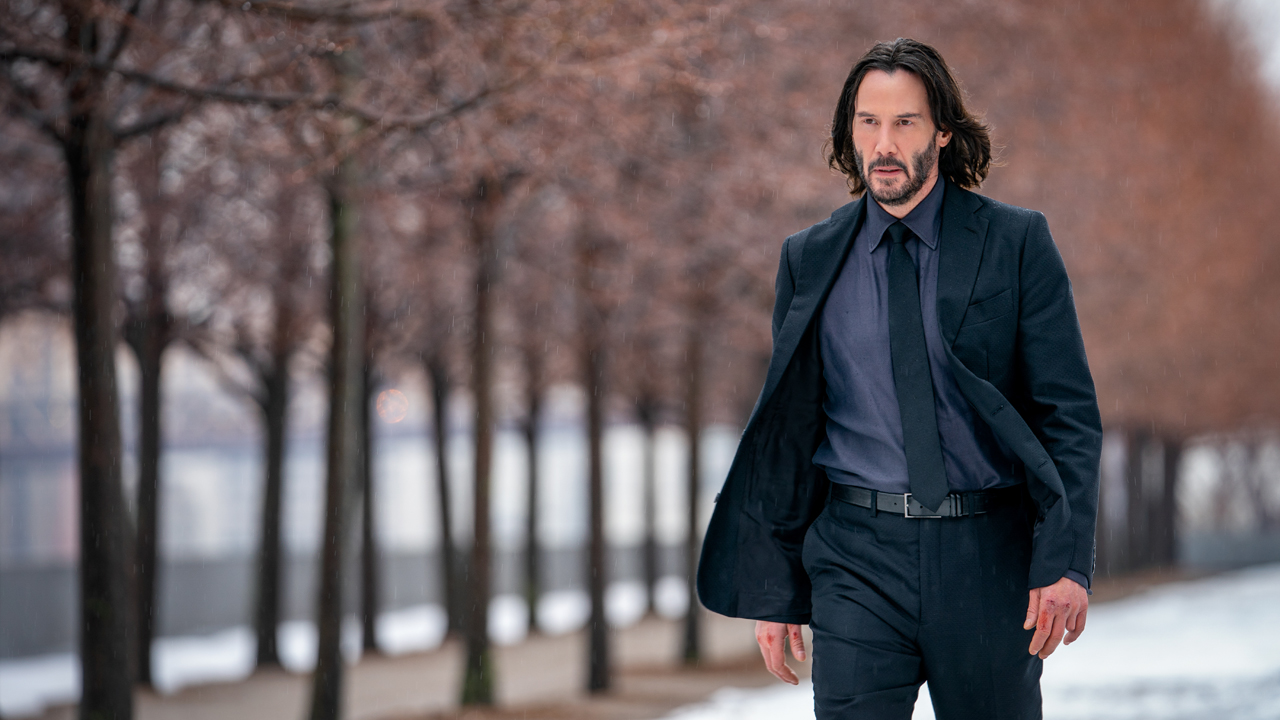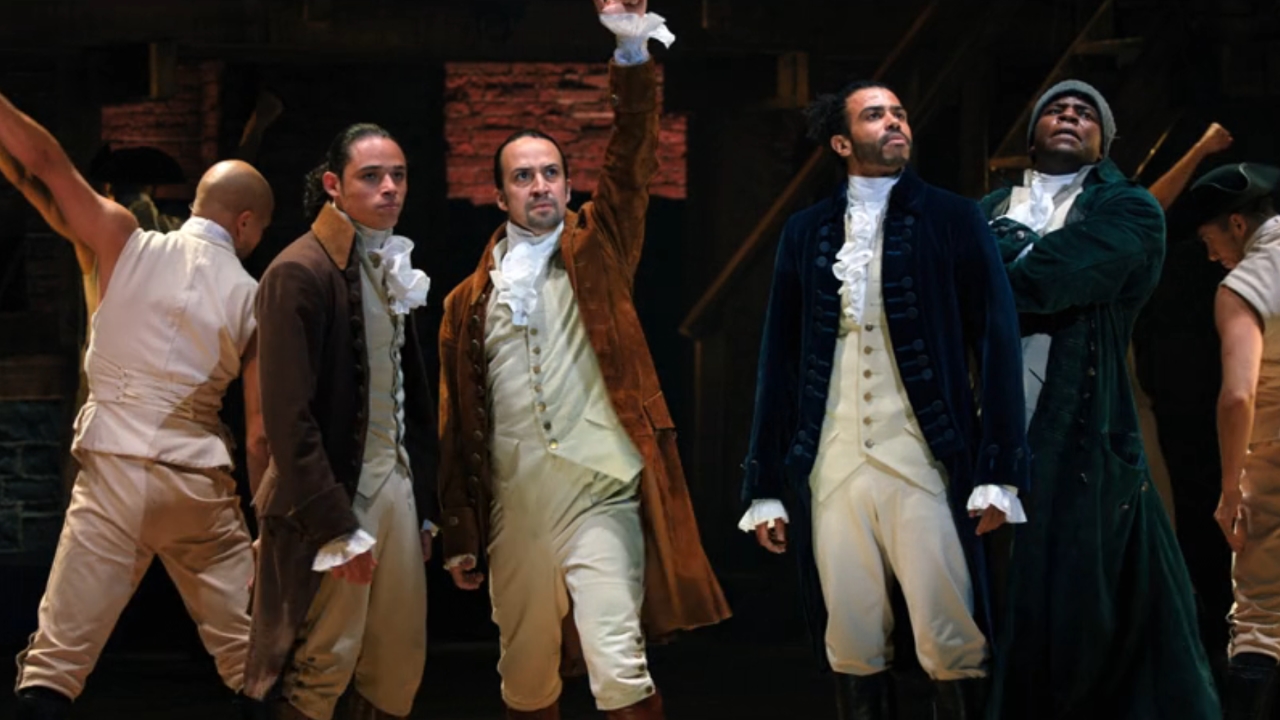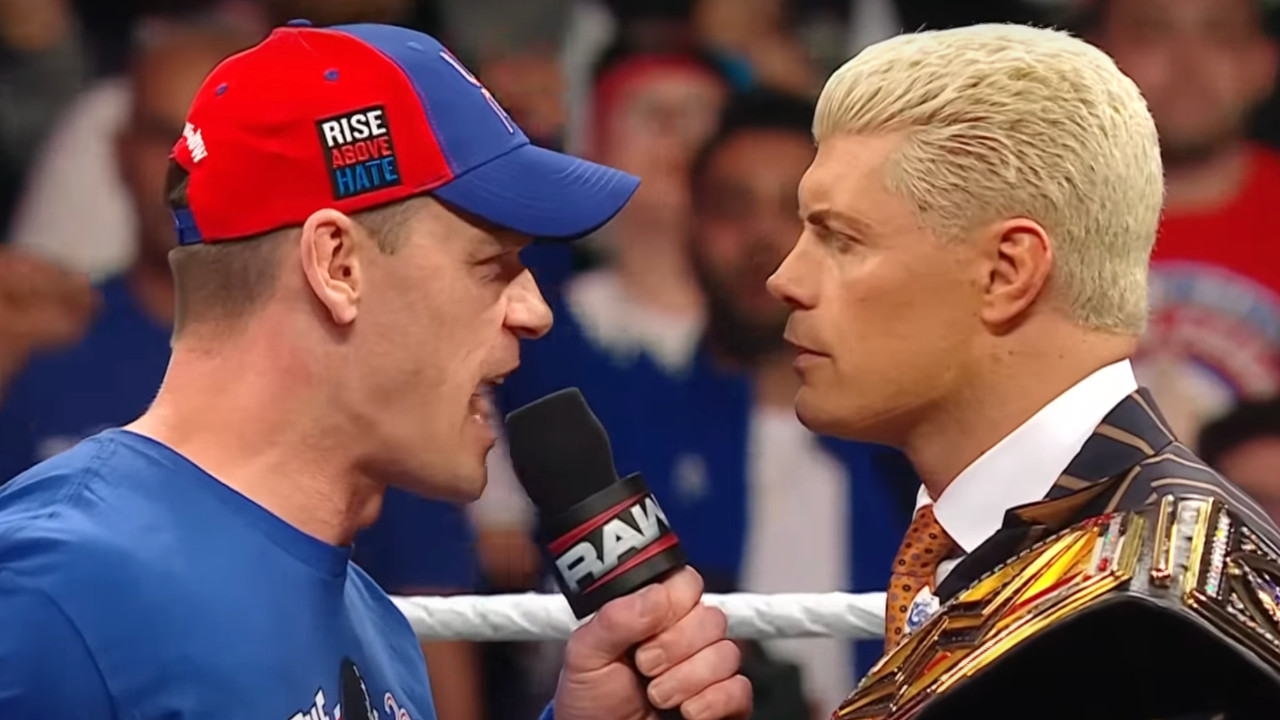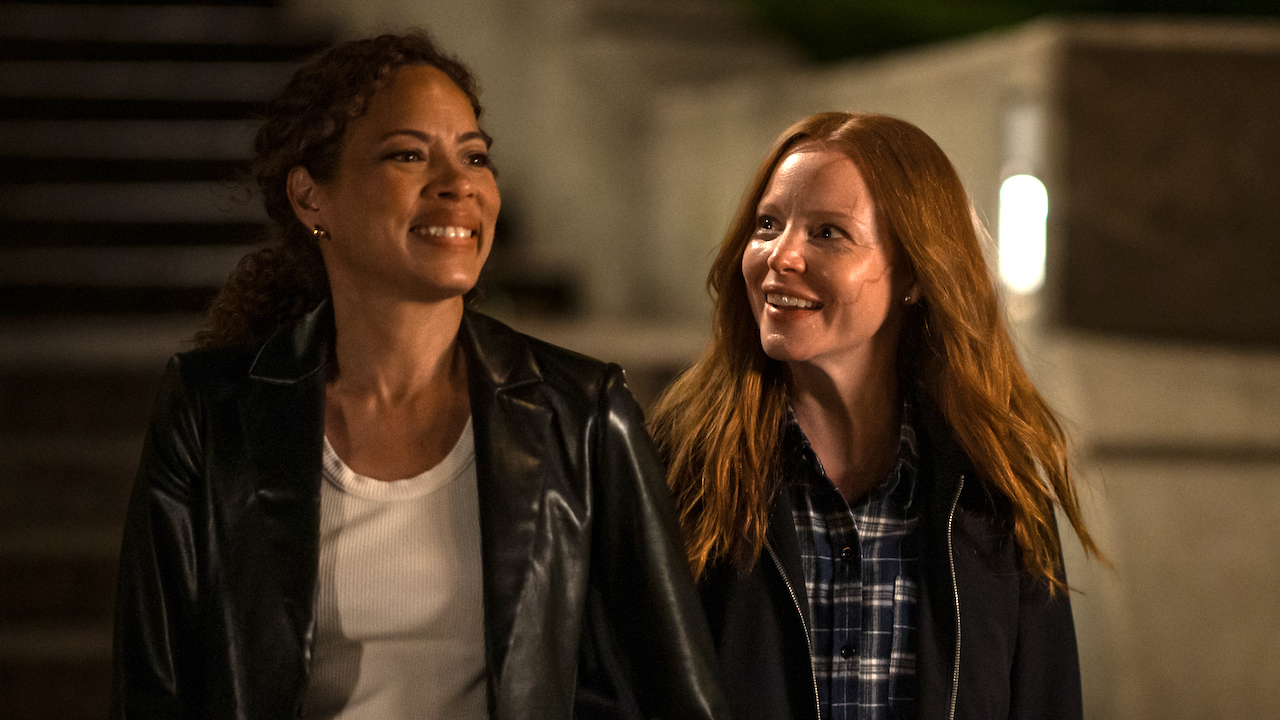25 Years After Braveheart, Its Writer Reveals The Most Emotional Fan Reaction And Why The Movie's Success Was A Surprise
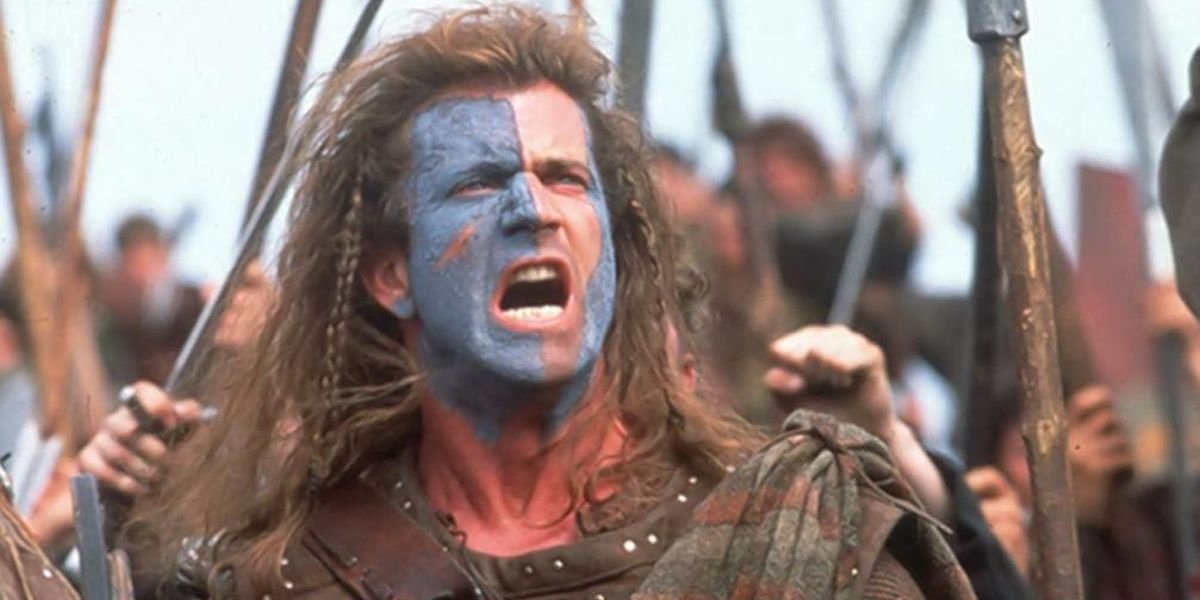
In 1995, director Mel Gibson’s historical blockbuster Braveheart started its journey to becoming a modern film classic. With a box office take of $210.4 million worldwide, and five Academy Awards won out of the 10 nominations it would receive, the film was a huge hit in its contemporary timeframe, and eventually became a memorable story that is still quoted to this very day. But if you ask writer Randall Wallace, who I recently spoke to on behalf of Braveheart's re-release for the 25th anniversary 4K Steelbook, if he thought the film would ever become the gigantic cultural icon that it is now, he’d modestly tell you he couldn’t have imagined it.
During an interview that saw us talking about how Braveheart came to be, and the legacy that followed its release 25 years ago, the story of Randall Wallace’s process creating the film’s script was as inspirational as the movie itself. Inspired by history, a surviving product of peer feedback and a film that even made it past a studio change, Braveheart is a story of perseverance and personal triumph; both for Randall Wallace and his subject, William Wallace.
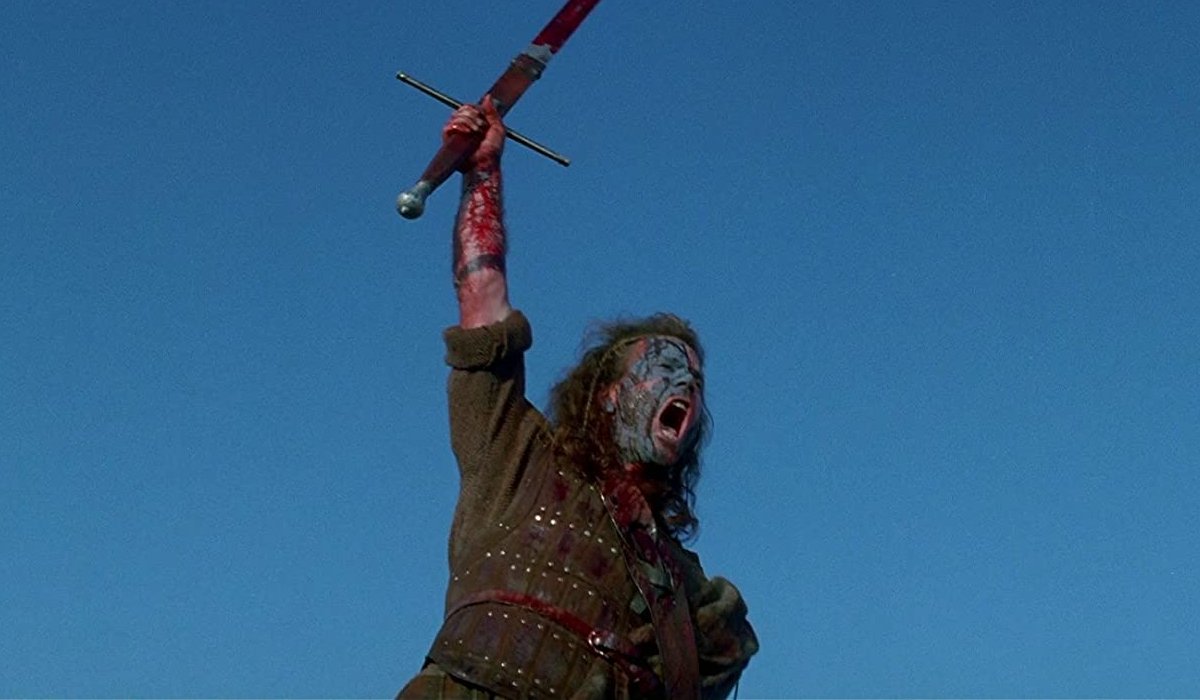
The Seven Magic Words That Inspired Braveheart, And Changed Randall Wallace's Fate
Braveheart’s roots started taking shape when a young Randall Wallace was inspired by a trip to Scotland, as he was traveling to learn more about his own Scottish roots. While he’s not related to William Wallace, Randall does have familial connections that stretch back into Scottish history. On that fateful trip, Wallace learned the story of William, to whom he shares no ancestral ties, and his potential support of the first true king of Scotland, Robert the Bruce, who would be played in Braveheart by Angus Macfadyen.
Upon seeing the statues of both men in Edinburgh Castle, stationed on either side of a particular doorway, Randall Wallace asked a guard if they knew whether or not William and Robert were allies for Scotland’s quest of independence from English rule. The answer to that question became the five magic words that inspired Braveheart, words that Wallace noted every writer dreams of hearing: “No one will ever know.” From that point, the story of Robert the Bruce potentially betraying William Wallace in real history eventually wove the story of Mel Gibson’s portrayal of the man who would inspire the cinematic version of Robert the Bruce to become the outlaw king he would be portrayed as in later films.
But perhaps the greatest inspiration to Randall Wallace when writing Braveheart was a subject he’d touch upon in the story of William Wallace’s rebellion. Much like William quested to avenge the death of his wife, Murron (Catherine McCormack), and to strike the blows for freedom Scotland needed to be free, Randall was striking out to provide for his family. He described that particular moment in his life as follows:
I thought, 'This was an incredible story.' But I had a baby on the way, and I needed to feed my family, and I also didn’t feel that I quite had the tools yet to attack such a story. It was 10 years later, and more an act of desperation… I was without a job, I was without money, when I sat down and wrote Braveheart.
Not only did Randall Wallace have a story he felt was incredible and ready to be told, he needed to provide for his family. While he had hoped Braveheart would at least save himself from going broke, Wallace’s intentions for his Academy Award-nominated script also saw him digging deep into himself to deliver a story he wasn’t sure he was ready to write.
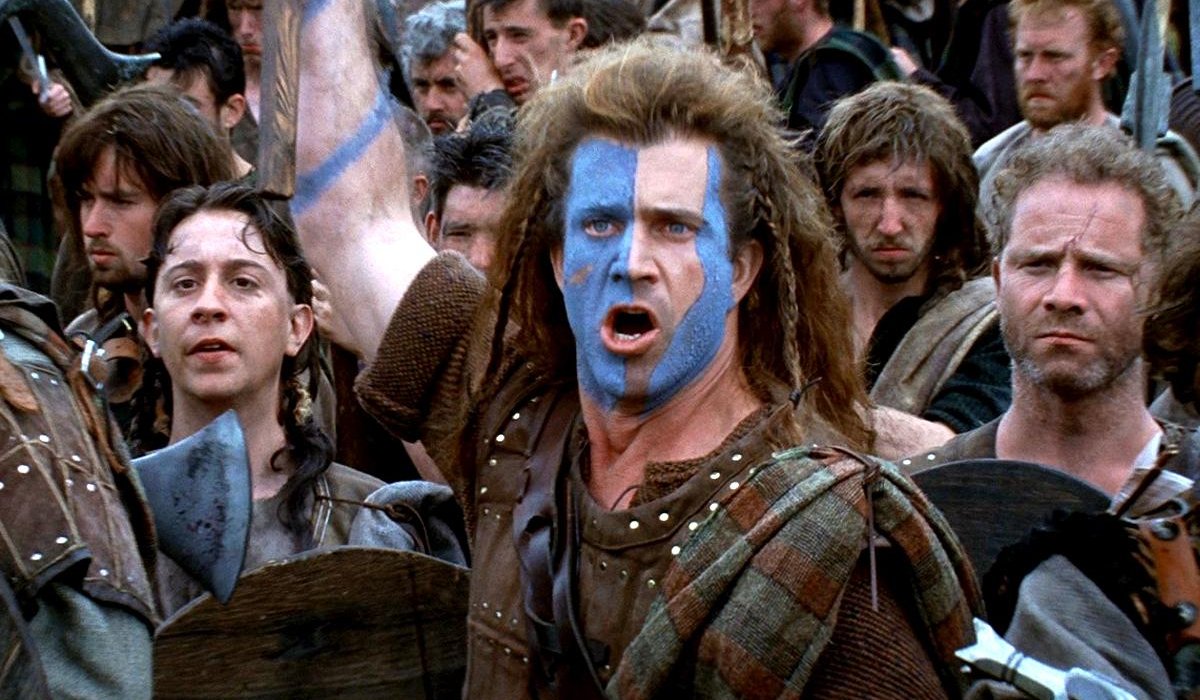
How Randall Wallace Knew He Had A Hit With Braveheart
As Randall Wallace wasn’t initially sure he had a hit with Braveheart, there were some pretty important encounters he’d have to live through before he was convinced of how big his career-making screenplay really was. But naturally, Wallace had to write the story before it could take off. Going into the writing of this script, he’d carried with him a lot of experience writing on various TV shows like Hunter and J.J. Starbuck, so one could see why the former TV writer would be daunted by a grand-scaled historical epic like Braveheart. This film was to be a crucial point in Randall Wallace’s career, as he embarked on its creation with the following mindset:
CINEMABLEND NEWSLETTER
Your Daily Blend of Entertainment News
When I wrote this script, I was writing, for the first time in my life, with complete disregard for how anyone else was gonna view the script. I even said a prayer that if I had one more script to ever write, and if I failed in my effort to be a writer, that I would go down with my own flag flying, and not trying to follow the Hollywood marketplace.
With that inspiration, Randall Wallace was off to write his historical Scottish epic. Once he’d shaped the film into the Braveheart he wanted to see in the world, Wallace turned to a very important source of feedback: close friend and Ace Ventura: Pet Detective writer, Jack Bernstein. Their friendship had an internal logic where they’d share their respective works with each other, and if they could get each other to react in the proper fashion, they knew they had something.
In the case of Braveheart, if Randall Wallace could get Jack Bernstein to cry, he knew he had the movie he wanted in his hands. Even with the best of friendships at work, a writer is prone to be nervous about how their audience will react. But Wallace’s fears were soon proven to be unfounded, as Bernstein read the film before a breakfast meeting the next day and told Randall that his script was the best thing he’d ever written.
Emboldened by this reaction to Braveheart, it was time to get the show on the road. Randall Wallace would eventually end up setting the film up at its first studio home, under the MGM banner and the leadership of then studio head, Alan Ladd Jr. This would lead to another vital round of feedback coming from Rebecca Pollack, the daughter of famed director Sydney Pollack. As she was working at MGM back when Braveheart started its life, Pollack called Wallace with some interesting news of her own as the script made its way around the studio. Wallace recalled:
I gave it to Becky, and she called me and said, “We had distributed the script around the United Artists/MGM offices… and all of the assistants are sitting at their desks weeping.” She said, “I’d walk around, and say, ‘You’re reading Braveheart, right?’, and they’d say ‘Yeah’. And I thought, “Wow, there’s something going on here.” It surprised me as much as anyone.
One more surprise would be in the making, as Alan Ladd Jr. would leave MGM for Paramount, and Braveheart would eventually follow with him. After that point, history took over and wrote itself, as Mel Gibson became the film’s director and lead actor, and there were some intense negotiations pertaining to the film’s budget, but eventually the film was completed, only coming in second to Universal’s Casper on opening weekend.
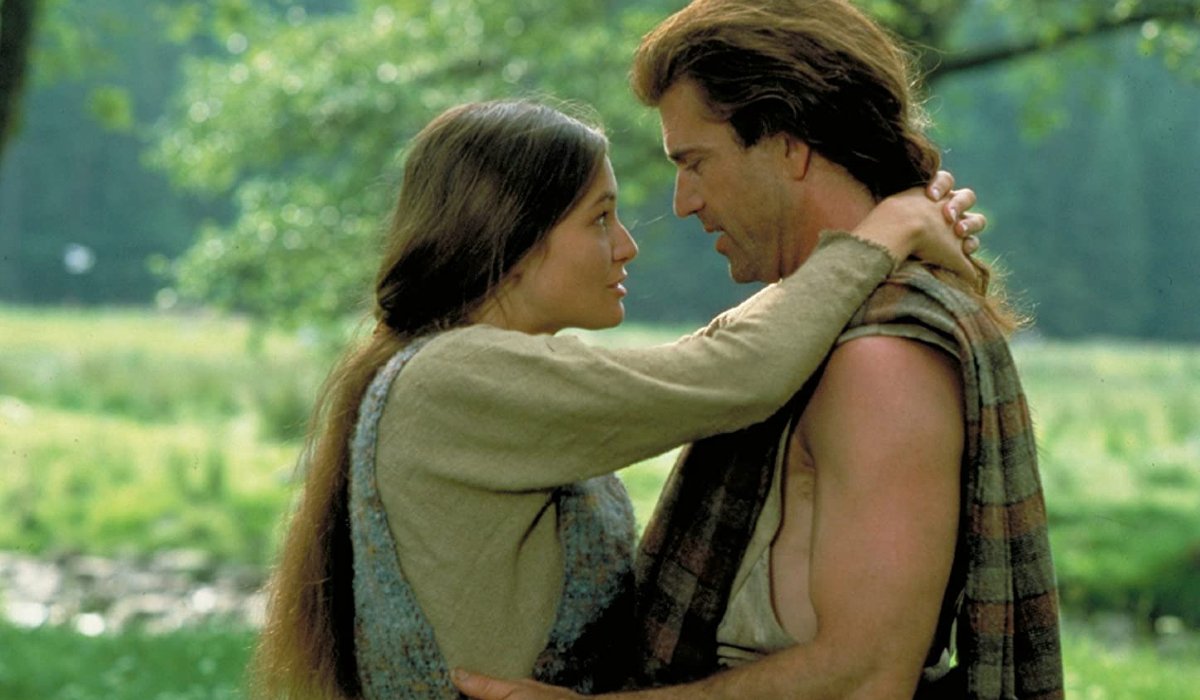
The Enduring Legacy Of Braveheart And Its Fans
Whenever the memory of Braveheart is conjured, the film is mostly remembered for its epic and sweeping battle scenes, the cries of memorable lines like “They may take our lives, but they’ll never take our freedom,” and the bittersweet ending that sees Mel Gibson’s William Wallace executed, which inspires Robert the Bruce to become the next true champion for Scotland.
But there’s a much gentler and even lighthearted side to Braveheart’s legacy. Randall Wallace highlighted this himself, as he called the film a “truly male picture”, as it revolves around four father/son relationships as a major influence on the film’s story. Yet when asked why enjoys making “war movies,” Wallace quickly corrects people in stating that he actually writes “love stories.” The love in Braveheart’s case not only being that for William Wallace and his compatriots, but also that of his love for his late wife.
Randall Wallace isn’t interested in the battles that William would fight, so much as the reasons he had to fight in the first place. And it’s that sort of underlying thread that has inspired many a fan to share Braveheart as a cinematic connection with people they care about. Wallace himself would learn this firsthand, as a Q&A at one particular screening presented him with the opportunity to meet a very special fan. In Wallace's words:
I was at a charity screening in Austin, Texas a few years ago, for a friend of mine. He started the Austin Film Festival. We did a screening in the theater for the first time in years, and afterwards I was doing a Q&A. When the movie ended, I walked up onto the stage, and the very first person who stood up was a 19 year-old girl, who said, ‘Mr. Wallace, I don’t have a question, I just want to tell you something. Six months ago, my fiancé died, and he told me as he was dying he wanted me to watch Braveheart, so I would understand the way he loved me. I had to take about five minutes to compose myself after that. But it said to me, it’s the way men want to be, and it’s the way women want their men to be.
Hearing that story for myself, I have to admit I needed a moment too. Emotional connections to films like Braveheart aren’t that surprising, but here was an example of a supposed “war story” really playing as more of a “love story.” Randall Wallace only saw that sort of appeal repeat itself throughout meetings with figures far and wide, as he learned that Duke University’s basketball coach Mike Krzyzewski actually watches the film every Christmas, with his entire family, in the comfort of his living room.
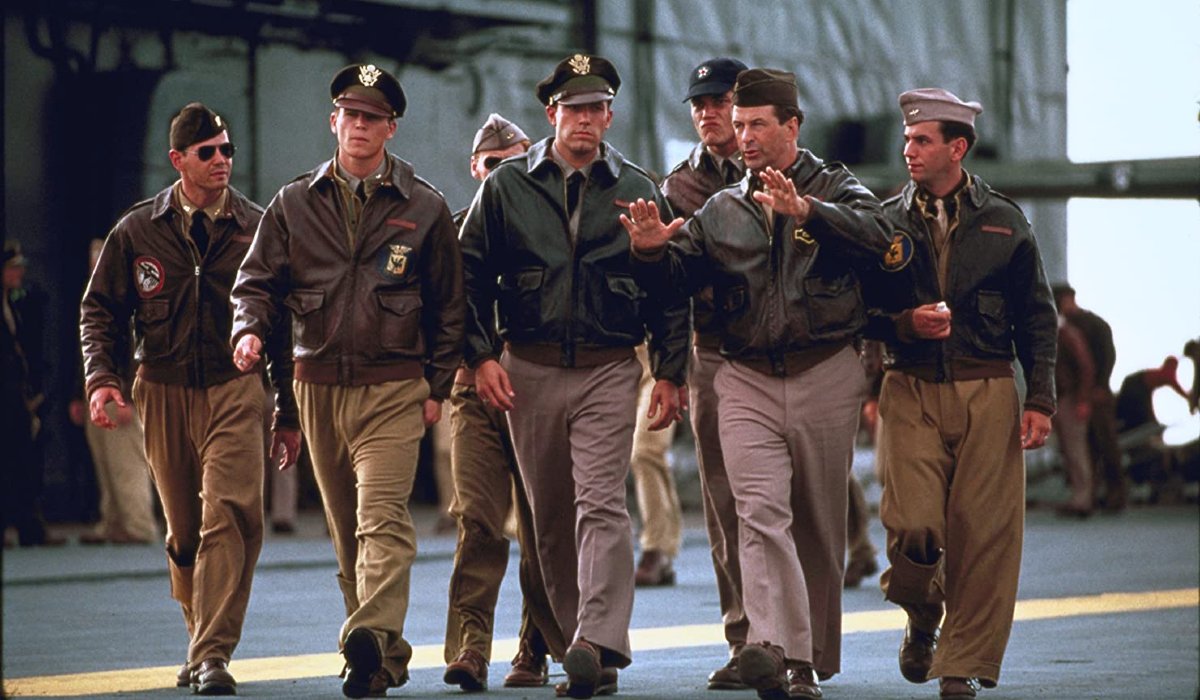
How Braveheart Made Pearl Harbor A Great Success For Randall Wallace
Acting as the ultimate Hail Mary pass for his writing career, Braveheart changed Randall Wallace’s life for the better. With an Academy Award nomination and a certified blockbuster under his belt, Wallace’s career would take off in pretty short order. His next film, The Man in the Iron Mask, would see him picking up the pen once again to write and direct his own swashbuckling version of one of the later volumes in Alexandre Dumas’ famed series The d'Artagnan Romances. But perhaps the greatest change that came from Braveheart’s fortunes shining so brightly is the fact that when Randall Wallace wrote Pearl Harbor, he’d make history in a greater, more personal way. As Wallace put it:
I went from being an absolutely unknown writer that no one wanted to hire to a writer with a story to tell. I can give you an example: for Braveheart I was paid scale, the minimum amount. And it was an original screenplay, no other producers involved, just me. … For my next screenplay for another director, Pearl Harbor, I set a record for the highest amount for an original screenplay. So there’s a metric for how much it did for my professional stature. But for my personal life, it was the turning point for where I found my voice as a writer, and I think it’s fair to say it’s where I found my voice as a man.
If it wasn’t for the experiences that Randall Wallace had while writing Braveheart, the world would have never gotten to experience William Wallace’s great strides for Scotland through his unique writer’s voice. But more importantly, those tools Randall didn’t think he had in his writer’s arsenal may have never been sharpened to the point where they sent his career truly soaring.
With his writing and directing career moving on to films like Disney’s Secretariat and Heaven Is for Real, as well as a reunion with Mel Gibson on the Vietnam Era story We Were Soldiers, Randall Wallace continues to tell stories about what people love, and what they’ll do to protect it. And it was all possible thanks to a family connection to a land full of rich history, and some magic words every writer longs to hear. The end result can be seen yet again, as Braveheart is currently available in a special 4K Steelbook release, which is available in stores now.
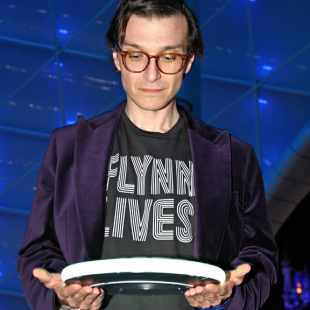
Mike Reyes is the Senior Movie Contributor at CinemaBlend, though that title’s more of a guideline really. Passionate about entertainment since grade school, the movies have always held a special place in his life, which explains his current occupation. Mike graduated from Drew University with a Bachelor’s Degree in Political Science, but swore off of running for public office a long time ago. Mike's expertise ranges from James Bond to everything Alita, making for a brilliantly eclectic resume. He fights for the user.
